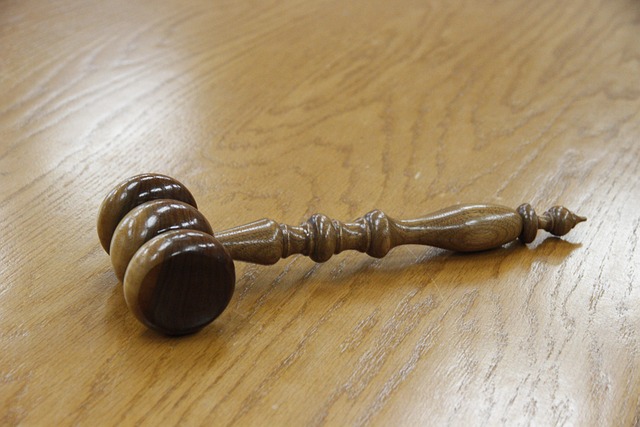Whistleblower Protection Laws (WPLs) safeguard individuals who expose illegal practices within organizations, offering immunity and protecting them from retaliation. Understanding WPLs is crucial for felons seeking post-conviction relief options, as it enables them to play a vital role in upholding the law while ensuring their personal safety. Post-conviction relief mechanisms, such as habeas corpus petitions, can lead to charge dismissal or reduced sentences, providing significant outcomes for felons. Effective legal aid programs and advocacy groups are essential to support whistleblowers, especially in high-stakes cases with complex procedures and potential backlash from powerful entities. Whistleblower protection lawsuits have secured justice, accountability, and financial compensation while acting as deterrents against corporate and political wrongdoings.
“Whistleblower protection lawsuits play a pivotal role in exposing corporate and government malfeasance, offering crucial post-conviction relief options for felons seeking legal reconsideration. This comprehensive guide delves into understanding whistleblower protection laws, their evolving role, and the challenges faced by those who dare to speak out.
From successful case studies to insights on navigating complex legal landscapes, this article explores how whistleblowers are reshaping corporate and public governance while securing justice for themselves. Discover the impact of these lawsuits in providing post-conviction relief options for felons.”
- Understanding Whistleblower Protection Laws: A Comprehensive Overview
- Post-Conviction Relief for Felons: Legal Reconsideration Options
- The Role of Whistleblowers in Exposing Corporate and Government Malfeasance
- Common Challenges Faced by Whistleblowers in Protection Lawsuits
- Success Stories and Case Studies: When Whistleblower Suits Prevail
Understanding Whistleblower Protection Laws: A Comprehensive Overview

Whistleblower Protection Laws (WPLs) are a crucial set of legal protections designed to encourage individuals to come forward with information about illegal or unethical activities within their organizations. These laws provide a safety net for whistleblowers, ensuring they can report such activities without fear of retaliation. Understanding these protections is essential, especially for those considering taking legal action under WPLs, including post-conviction relief options for felons.
The scope of WPLs covers a wide range of misconduct, from corporate fraud and environmental violations to public health concerns and government corruption. An unprecedented track record of success has been achieved in high-stakes cases involving both corporate and individual clients. These laws offer a comprehensive framework, ensuring that whistleblowers are protected against any form of adverse action, such as termination, demotion, or harassment, for their disclosures. This protection extends to civil and criminal proceedings, providing an avenue for those with knowledge of wrongdoing to come forward and play a vital role in upholding the law without fear of personal harm.
Post-Conviction Relief for Felons: Legal Reconsideration Options

After a conviction, individuals with criminal records often explore post-conviction relief options to potentially regain their freedom and clear their names. This legal process offers felons a chance to challenge their initial verdict and seek justice. One significant aspect is understanding the various avenues for reconsideration.
Many states provide mechanisms like habeas corpus petitions, which allow defendants to present new evidence or argue legal errors that occurred during their trial. These appeals can lead to a complete dismissal of all charges if the court finds substantial grounds for relief. While jury trials are a standard part of this process, there are alternative paths that could result in significant outcomes for his clients, including reduced sentences or even exoneration.
The Role of Whistleblowers in Exposing Corporate and Government Malfeasance

Whistleblowers play a crucial role in exposing corporate and government malfeasance, serving as the eyes and ears of the public within organizations that may otherwise operate with impunity. By coming forward to report illegal activities, whistleblowers initiate a process that can lead to significant changes and accountability. They are instrumental in uncovering fraud, corruption, environmental violations, and other forms of misconduct that might otherwise remain hidden.
These individuals often face significant personal risks, including retaliation from employers and legal consequences. Fortunately, whistleblower protection lawsuits provide post-conviction relief options for felons who have come forward with valuable information. This support is vital in ensuring that whistleblowers can pursue justice without fear of severe repercussions, encouraging more people to step forward and challenge unethical practices in both the corporate and government sectors, ultimately contributing to a fairer and more transparent society.
Common Challenges Faced by Whistleblowers in Protection Lawsuits

Whistleblowers often face significant challenges when pursuing protection lawsuits, especially in high-stakes cases. One of the primary obstacles is navigating complex legal procedures and understanding their rights within a specific jurisdiction. Many whistleblowers, particularly those with limited financial resources or prior criminal records, struggle to access adequate legal representation, which can hinder their ability to present strong cases. This issue highlights the need for effective legal aid programs tailored to support whistleblowers in securing post-conviction relief options for felons.
Additionally, these individuals may face backlash from powerful entities, including corporate interests or government agencies, leading to potential threats and intimidation tactics. Such actions can discourage whistleblowers from coming forward or pursuing legal action. However, with the right support, whistleblowers can overcome these challenges. Leveraging the aid of advocacy groups and legal experts specializing in whistleblower cases can significantly enhance their chances of winning challenging defense verdicts and ensuring protection for their disclosures.
Success Stories and Case Studies: When Whistleblower Suits Prevail

Whistleblower protection lawsuits have seen numerous success stories that highlight their significant impact on ensuring justice and accountability. These cases not only provide financial compensation to the whistleblowers but also serve as a powerful deterrent for potential wrongdoers within the corporate and political arenas. One notable trend is the emergence of individuals who, after facing adverse consequences due to their disclosures, explore post-conviction relief options, such as reducing or vacating their sentences, through legal channels.
Case studies in high-stakes white-collar defense illustrate how whistleblowers can navigate complex legal landscapes. Through meticulous documentation and strategic filings, successful outcomes have been achieved, exposing corporate fraud and enabling the recovery of substantial ill-gotten gains. These victories not only provide financial redress but also foster a culture of transparency within the philanthropic and political communities, ensuring that ethical conduct is upheld and abuses are addressed effectively.
Whistleblower protection lawsuits play a vital role in upholding justice by enabling individuals to expose corporate and government misconduct. By understanding the comprehensive overview of whistleblower laws, navigating post-conviction relief options for felons, and recognizing common challenges, we can foster an environment where whistleblowers feel empowered to come forward. Success stories from real cases demonstrate that when these suits prevail, they not only provide financial compensation but also serve as a powerful testament to the importance of transparency and accountability in both corporate and public sectors.






